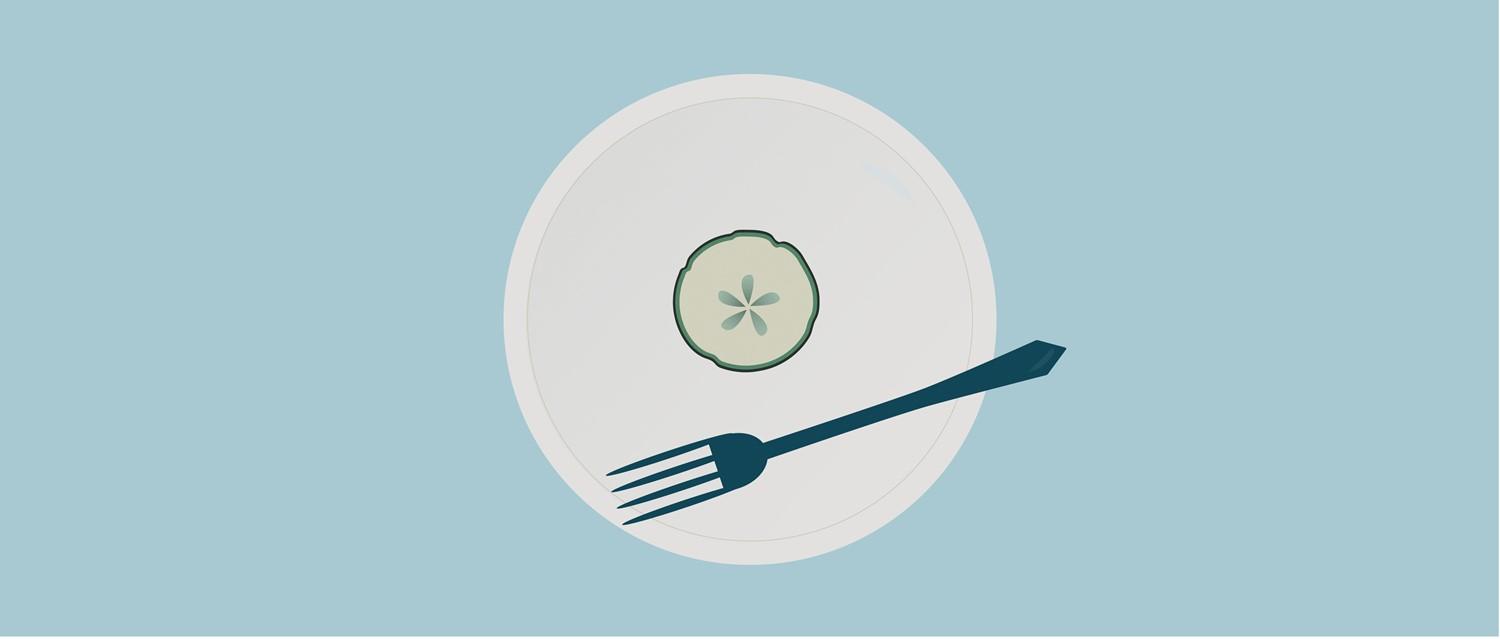
Do crash diets ever really work for healthy weight loss?
Peer reviewed by Dr Sarah Jarvis MBE, FRCGPAuthored by Abi MillarOriginally published 24 Oct 2018
Meets Patient’s editorial guidelines
- DownloadDownload
- Share
- Language
- Discussion
Crash diets aren't generally seen as a sensible way to lose weight. Tell your friends you're considering such a diet, and you probably won't be met with much encouragement - it's practically a truism that there are no quick fixes to weight loss.
However, a recent study has cast doubt on the received wisdom, by claiming that meal replacement diets might actually work better than conventional approaches.
In this article:
In this study, published in the British Medical Journal (BMJ), 278 obese adults who were looking to lose weight were assigned either to a 'total diet replacement' regime, or to a more slow-and-steady weight management programme.
The former group was restricted to soups, shakes and bars totaling just 810 kcal a day, whereas the latter group was advised to eat healthily and cut calories. (In both cases, the programme lasted 12 weeks, and participants received support from a counsellor.)
A year after the start of the study, most of the participants had lost weight and kept it off. However, the crash dieting group had lost nearly four times as much weight as the healthy eating group (10.7 kg versus 3.1 kg).
"The NHS does not routinely offer this type of programme, and many primary care doctors ... have concerns about the safety of such interventions. This trial should provide reassurance," wrote the authors.
They also suggested the scheme could be rolled out across the NHS, remarking that it "leads to greater weight loss with larger improvements in cardiovascular risk than currently available weight loss programmes".
Continue reading below
Their role is limited
This study seems to fly in the face of everything we know about weight loss. So how should we interpret its findings? Should we all be opting for extreme calorie restriction every time we want to drop a few pounds?
Dr Ian Campbell, a GP and well-known obesity expert, thinks not. He says that crash diets are not his preferred option for patients wanting to lose weight.
"Crash diets have their place, but their role is limited," he says. "Someone in need of rapid weight loss, perhaps before major surgery for example, may well find a meal replacement dietary regime helpful, and quick. Initial weight loss results can be just as good as traditional weight loss programmes. But long-term weight loss is a major challenge."
Crash diets do work, he says - but only at first. They can lead to significant improvements in cardiovascular risk markers, like cholesterol level and blood sugar levels, and the weight loss may help lower blood pressure. Where they fall short is their inability to foment real habit change.
"Most poor diets are due to poor habits, often the result of emotional or even psychological disturbance, leading to unhelpful relationships with food," he says. "Unless these psychological factors are dealt with, meaningful, long-term weight loss is unlikely."
Support is needed
Back to contentsIt's worth remembering that, in the BMJ study, the participants received 12 weekly support sessions followed by three further monthly sessions. At least for the time being, the average person is unlikely to have access to that level of support.
Earlier this year, the BBC documentary The Big Crash Diet Experiment followed four volunteers on a very low-calorie diet. While all lost a dramatic amount of weight, the programme sounded a note of caution: their diet plan might be too expensive for the NHS because of the number of GP contact hours required.
Jess English, a Brighton-based dietician, points out that individual results may differ markedly from those seen under study conditions.
"The benefits seen in the studies were only seen where there was significant input from a multidisciplinary team of staff - psychologists, dieticians, physicians and other healthcare professionals," she says. "Although these diets may improve some people's health outcomes under careful supervision, for the majority of people they will further confuse our already complex relationship with food."
She feels that crash dieting generally fails to promote a healthy approach to eating, and can interfere with our natural hunger and fullness cues. It can also send people into a cycle of yo-yo dieting.
"It can overrule our own body's attempts to balance its energy, ie on days when we're more or less active, and may lead to bingeing when people are finally 'allowed' to eat the foods that they desire," she says. "People can diet for a while, but they need to know how to eat in a flexible, realistic and sustainable way over the longer term."
Continue reading below
They may reverse type 2 diabetes
Back to contentsNone of this is to condemn crash dieting outright. Both Campbell and English say that, if a patient really wanted to take this approach, they would provide support and try to maximise the diet's potential.
There is also some evidence that crash diets can help those with type 2 diabetes. In one study, published in The Lancet last year, participants consumed a very low-calorie diet for three to five months. A year later, almost half the participants had sent their diabetes into remission. Among those who had lost more than 15 kg, 86% were in remission after a year.
Although these results are encouraging, the researchers don't know how long remission will last, or whether it'll be possible to deliver this type of treatment through the NHS. They are currently following some of the participants for another three years, to see whether the benefits hold over the long term.
"It's very important that anyone living with type 2 diabetes considering losing weight in this way gets support and advice from a healthcare professional," said Dr Elizabeth Robertson, director of research at Diabetes UK.
Another recent study looked at the potential benefits of intermittent fasting for type 2 diabetes. Three patients were instructed to follow a scheduled 24-hour fast three times a week, over a period of several months. All three were effectively able to reverse their disease, and no longer needed insulin. While this was a very small trial, the results do seem promising - not least because intermittent fasting may be easier to stick to than a consistently low-calorie diet. (The 5:2 diet, while less extreme than the diet explored in this study, is another example of an intermittent fasting approach.)
Not always realistic
Back to contentsDespite the possible benefits, crash diets are not a fail-safe strategy - especially when unsupervised, they could cause mental and physical harm.
"They could lead to hypoglycaemia in people with diabetes and who are on medication," says Campbell. "They could lead to excessive falls in blood pressure in those being treated for hypertension, and unless the regime followed has been carefully designed, there is the potential for micronutrient deficiencies."
On balance, then, it seems that the conventional advice about weight loss and health may have some merit after all.
"Weight isn't the be-all and end-all of health," says English. "We can improve health behaviours regardless of weight and see positive outcomes. However, it's boring and that's why no one wants to hear about it - they want radical, quick-fix solutions - and unfortunately, time after time we've shown that just isn't realistic."
Patient picks for Obesity and weight loss

Healthy living
Does apple cider vinegar help with weight loss?
Apple cider vinegar is often praised by celebrities and wellness ‘influencers’ as a natural remedy for weight loss, appetite suppression, and better blood sugar control. But what does the science actually show? In this article, we look at what the research says and how you might use it safely for weight management.
by Heather Ainsworth

Healthy living
Can you blame your weight on your genes?
It's said 'you are what you eat'. But why can some people eat whatever they like without putting on a pound, while others have to watch every morsel they put into their mouth and count each calorie they consume?
by Kerry Taylor-Smith
Continue reading below
Article history
The information on this page is peer reviewed by qualified clinicians.
24 Oct 2018 | Originally published
Authored by:
Abi MillarPeer reviewed by
Dr Sarah Jarvis MBE, FRCGP

Ask, share, connect.
Browse discussions, ask questions, and share experiences across hundreds of health topics.

Feeling unwell?
Assess your symptoms online for free
Sign up to the Patient newsletter
Your weekly dose of clear, trustworthy health advice - written to help you feel informed, confident and in control.
By subscribing you accept our Privacy Policy. You can unsubscribe at any time. We never sell your data.